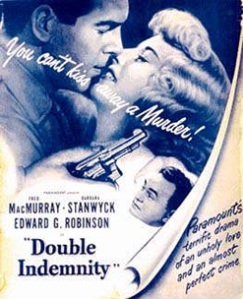 A couple of weeks ago I wrote a very controversial post that I titled Indie Authors Are Killing Great Writing. For the record, I am an indie author with a number of well-received books. I am also a supporter of indie authors. Believe it or not, that’s why I wrote the post.
A couple of weeks ago I wrote a very controversial post that I titled Indie Authors Are Killing Great Writing. For the record, I am an indie author with a number of well-received books. I am also a supporter of indie authors. Believe it or not, that’s why I wrote the post.
Independent Writers Have It Tough
Many people agreed with me. In fact, one tweet read: “At last! Someone finally says it!” Another said: “Indie pub = more responsibility on writer”. Again, I’m not trying to bash indie authors, I’m pointing out the fact that any author should hone his or her craft before publishing. Most authors don’t write something worthy of being published on their first try or even their second or third. It takes time to develop your writing skills before you truly know and understand how to write a compelling story. It’s said that to master a craft takes at least 10,000 hours – I wonder how many indie authors have put that many hours into their craft (more on this below)…
My point is that as an indie author, you have a lot of hurdles to overcome. There are millions of books being published each year. It can be difficult to find readers for your books, and you don’t want to, nor can you afford to, alienate readers by publishing something bad. If you don’t believe me, read this comment my other post received from someone who does reviews:
Renee, every time I see a novel full of errors, it drives me crazy. They are glaring and so obvious that it blows me away the author didn’t correct them. The vast majority of the time, it is indies who do this. For every ten indie books I read, at least seven will have this problem to some degree. Does it stop me from reading them? No, it doesn’t, but my expectations have been lowered because of it. You simply can’t expect as much.
As a book reviewer, I have gotten very frustrated with authors nagging my reviews or even commenting on them just because I pointed problems with their work. If they can’t handle criticism, then they shouldn’t release their writing to the public and ask people to pay for it. If I’m spending my hard-earned money (even if it’s only 99 cents), and using my limited time for reading, I expect the author to have produced a quality product for me to enjoy. Yet some of them get angry at me for saying even one thing is wrong with their book. This causes quite a bit of frustration, but I haven’t given up. Finding those Indie gems makes it all worth the trouble, even if some readers aren’t as patient as I am and will only read trad published books. Yet it shouldn’t be such a difficult process to find good books. You are absolutely right that standards seem to be considerably lower for what everyone thinks is good enough to be published since the advent of ebooks.
That’s just one comment. Believe me, there are a lot of people who feel this way. And along with alienating readers, why would you want to put out a story before you’d had some neutral feedback, quality editing and so on? Don’t you want to put out something of quality?
But Mainstream Publishing Companies Publish Crap
What’s wrong with pointing out that there is a plethora of indie crap out there? Some say this is not supporting indie authors. I disagree. Authors need to be self-critical. They need to hear the bad – that’s how they improve.
Now, many pointed out that there is crap being published by mainstream publishing companies, and I responded there, and now here, that this isn’t the point. Who cares if there is crap from mainstream presses? But as I’ve thought about this more, I also think there is another response.
Remember Roxanne, with Steve Martin? The bully in the bar picks a fight with Martin by calling Martin Big Nose. What is Martin’s response? “You have this in front of you, and all you can think of is Big Nose.”
Indie Authors Miss a Golden Opportunity
We have bad publishing by way of the mainstream publishers. Our response shouldn’t be just to point that out. We have a golden opportunity here! We should be trying to rise above that standard, not meeting it. Wouldn’t it be nice if people thought, “Wow, an indie author! I love reading indie authors because they consistently publish works that are better by far than what I get from the mainstream publishers!” But this isn’t the case. In my opinion, you have tons of bad stuff out there – it far exceeds the occasional gem. And that’s unfortunate because:
- Those authors make it harder for the really good indie works to get noticed (a glut in the marketplace means that many more books for readers to search through to find the good ones)
- It’s burns readers out – in my opinion, too many readers feel “burned” by a bad indie book and losing indie readers doesn’t need to happen at all (if you don’t believe me, research book reviewers and see how many of them won’t review self-published books)
- Those authors only hurt their marketing/selling chances for future books
This is the BIGGEST point that I’m hoping to help some of you (who care to listen) to avoid. I wrote on a previous post about an author who published something, got numerous reviews about how he needs to work on his writing, and in his author bio section he asked his readers to stick with him and that he was going to get the book edited and people could read it again. It’s too late! You’ve lost your readers. I know, some of you are going to point out that some readers will check back. Maybe, but the vast majority won’t. And you, the author, have lost market share. Maybe that doesn’t matter to you. But if you do want sales, and you dream of quitting your day job, you can’t afford to alienate your readers. That’s why I’m encouraging you to know that your book is great before you publish it.
How to Master Your Craft
As I pointed out above, it’s said that you need 10,000 hours to master something (Stephen King and JA Konrath talk about this, as do many other respected authors). How many of you have mastered writing before you publish? How many of you publish your first book? I have news for you – if you publish the first book you wrote, statistics would say it’s probably not very good. I’m speaking from my own experience here, as well as from hearing from multiple published authors that I’ve visited with at conferences. My first two books are written well, meaning I have a grasp of the English language and I don’t have tons of grammatical errors, but the stories don’t really work. They don’t engage the reader. They run off on rabbit trails that don’t advance the story. They use passive voice. They switch viewpoints when they shouldn’t. And so on, and so on.
Have you mastered your craft? Do you even know? Are you scared of rejection? Is your ego in the way of hearing positive criticism? These are things to ask yourself.
What Makes Good Writing?
A reader of my other post asked for some feedback. I gave it to this person, and he has agreed to let me share a few paragraphs of his writing. I’ll be posting this soon and I hope you’ll join in the conversation, both to help this other author and myself – let’s face it, there are always learning opportunities.
Before You Bash Me
Yes, I agree that there are wonderful indie authors out there. I would include myself on that list (based solely on reviews and sales). Yes, if there was only mainstream publishing, readers would miss out on many great reads. Yes, the ebook revolution is giving us indies a chance to get our works out there. Those are not and never should be arguments for publishing a bad novel.
We have a golden opportunity to rise above the bad books out there. Let’s make the BEST of it!
REMINDER – contest for a FREE KINDLE (and I decided to throw in some free books)! Visit www.reneepawlish.com for all the details.
Image: sscreations / FreeDigitalPhotos.net










